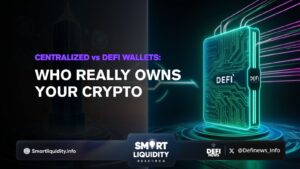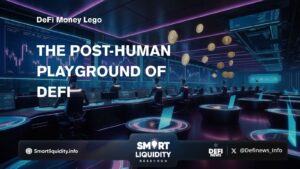The Metaverse in the New Era: Transforming Digital Interaction


The concept of the Metaverse is rapidly evolving from a futuristic idea to a tangible reality, poised to revolutionize how we interact, work, and play in digital spaces.
At its core, the Metaverse is a collective virtual shared space created by the convergence of virtually enhanced physical reality and physically persistent virtual reality. This immersive digital universe allows users to interact with each other and digital environments in unprecedented ways, offering limitless possibilities for innovation and engagement.
As we enter this new era, various projects are leading the charge in developing and popularizing the Metaverse.
Facebook’s Transformation into Meta
One of the most significant shifts toward the Metaverse is Facebook’s rebranding to Meta. This strategic move underscores the company’s commitment to building a Metaverse-centric future. Meta is focused on developing advanced virtual reality (VR) and augmented reality (AR) technologies, aiming to create immersive digital environments where users can work, socialize, and play. Mark Zuckerberg, Meta’s CEO, envisions a world where people can have meaningful interactions in virtual spaces, whether it’s for business meetings, social gatherings, or entertainment. Meta’s ambitious plans include the development of Horizon Workrooms, a virtual office space that allows remote teams to collaborate in a shared virtual environment, enhancing productivity and engagement.
Decentraland: A User-Owned Virtual World
Decentraland is another groundbreaking project within the Metaverse realm, offering a decentralized digital environment entirely owned by its users. Powered by blockchain technology, Decentraland enables individuals to purchase virtual land, create unique experiences, and monetize their creations through its native cryptocurrency, MANA. This virtual world fosters creativity and entrepreneurship, allowing users to build everything from virtual art galleries to interactive games. Decentraland’s open marketplace and user-generated content model exemplify how the Metaverse can blend virtual and real-world economies, creating new opportunities for digital entrepreneurship and innovation.
The Gaming Industry’s Metaverse Evolution
The gaming industry is at the forefront of the Metaverse revolution, with games like Fortnite and Roblox transforming into expansive social platforms. These games offer more than just gameplay; they provide virtual spaces where players can attend concerts, participate in special events, and interact with each other in a variety of ways. For instance, Fortnite’s virtual concerts, featuring artists like Travis Scott and Ariana Grande, have attracted millions of players, demonstrating the potential for large-scale social experiences in the Metaverse. Similarly, Roblox allows users to create their own games and experiences, fostering a community-driven approach to content creation and interaction.
The Metaverse and Virtual Real Estate
Virtual real estate is becoming a hot commodity in the Metaverse, with platforms like The Sandbox offering users the ability to buy, sell, and develop virtual land. The Sandbox, a blockchain-based virtual world, allows users to create, own, and monetize their gaming experiences. By purchasing virtual land, users can build custom environments, develop games, and even host events. This burgeoning virtual real estate market is attracting significant investment, highlighting the growing economic potential of the Metaverse.
The Future of Digital Interaction
As these projects illustrate, the Metaverse represents a significant shift in how we perceive and interact with digital spaces. By leveraging advancements in VR, AR, and blockchain technologies, the Metaverse is creating interconnected digital experiences that transcend traditional boundaries. This new era of digital interaction promises to reshape social, economic, and cultural landscapes, offering new opportunities for innovation and engagement.
In conclusion, the Metaverse is not just a futuristic vision but an emerging reality with profound implications for the future of digital interaction. Projects like Meta, Decentraland, and various gaming platforms are pioneering this transformation, demonstrating the vast potential of the Metaverse to revolutionize how we connect, create, and engage in the digital world. As technology continues to advance, the Metaverse will undoubtedly become an integral part of our everyday lives, offering endless possibilities for exploration and innovation.
DISCLAIMER:
“The information provided on this platform is for general informational purposes only. All information on the platform is provided in good faith; however, we make no representation or warranty of any kind, express or implied, regarding the accuracy, adequacy, validity, reliability, availability, or completeness of any information on the platform.”




